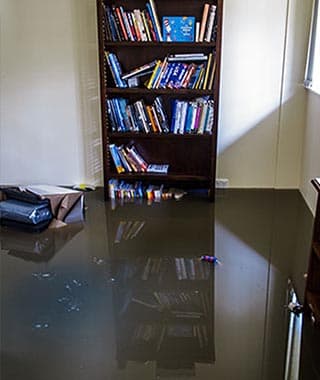Uh-Oh, Mold! How to Make Sure Your New Home Isn’t Hiding Unwanted Guests
Imagine moving into your dream home and finding you have unexpected tiny, harmful guests—mold! Navigating through this can be tricky, but knowing about it and tackling it before you finalize the deal is the key. In Florida, the law says sellers must tell you about hidden issues like mold, but having an expert check is your safest bet.
Why Worry About Mold?
While some molds you might see or smell, some are sneaky and hide where you can’t easily find them, like under floors or inside walls. Different kinds of mold can cause varied problems—some, like black mold, can really affect your health, causing things like allergies or breathing issues.
How an Expert Can Help:
- Picture the Real Situation: Professionals use special tools and methods to find mold, measure dampness, and check for water leaks—all things that might welcome mold. This can involve using advanced techniques like thermal imaging, which aren’t part of a regular home check.
- Understand Different Molds: Some molds prefer living on wooden surfaces, while others like carpeting or walls. Knowing what type you’re dealing with helps manage it properly.
- Second Opinions Matter: If a general inspection mentions minor mold, an expert might reveal it’s a bigger problem than you thought. Especially if there’s a history of mold issues, a double-check is worthwhile.
Avoiding Future Trouble:
Mold doesn’t just stay put—if it spreads, it can hurt your home’s structure and potentially
and health costs. Especially in homes with basements or windowless bathrooms, mold finds an ideal home to flourish. A standard inspection might point out visible issues like wall stains or musty smells, but an expert can alert you to problems lurking beneath the surface that might grow into bigger headaches down the line. Worryingly, the Environmental Protection Agency has found that nearly 21% of asthma cases in the U.S. are linked to mold and dampness exposure.
Ensure Everything is Documented:
Although Florida sellers are supposed to report known issues, that doesn’t guarantee a thorough mold inspection was conducted. A professional inspector provides you with detailed reports, which can be a powerful tool when negotiating. If undisclosed issues pop up or if a known problem has worsened, this documentation can help you discuss price reductions or demand repairs before the purchase is finalized.
Conclusion:
Buying a home with mold might feel like a nightmare, but with the right knowledge and experts by your side, it’s something you can navigate successfully. Ensuring you enter your new home with no hidden, moldy surprises not only safeguards your investment but also ensures the health and safety of your family in the long run. Secure peace of mind by making informed decisions and keep unwanted tiny guests out of your new home!
Ensuring a smooth, mold-free home purchase isn’t daunting when you’re armed with the right knowledge and expert support!










